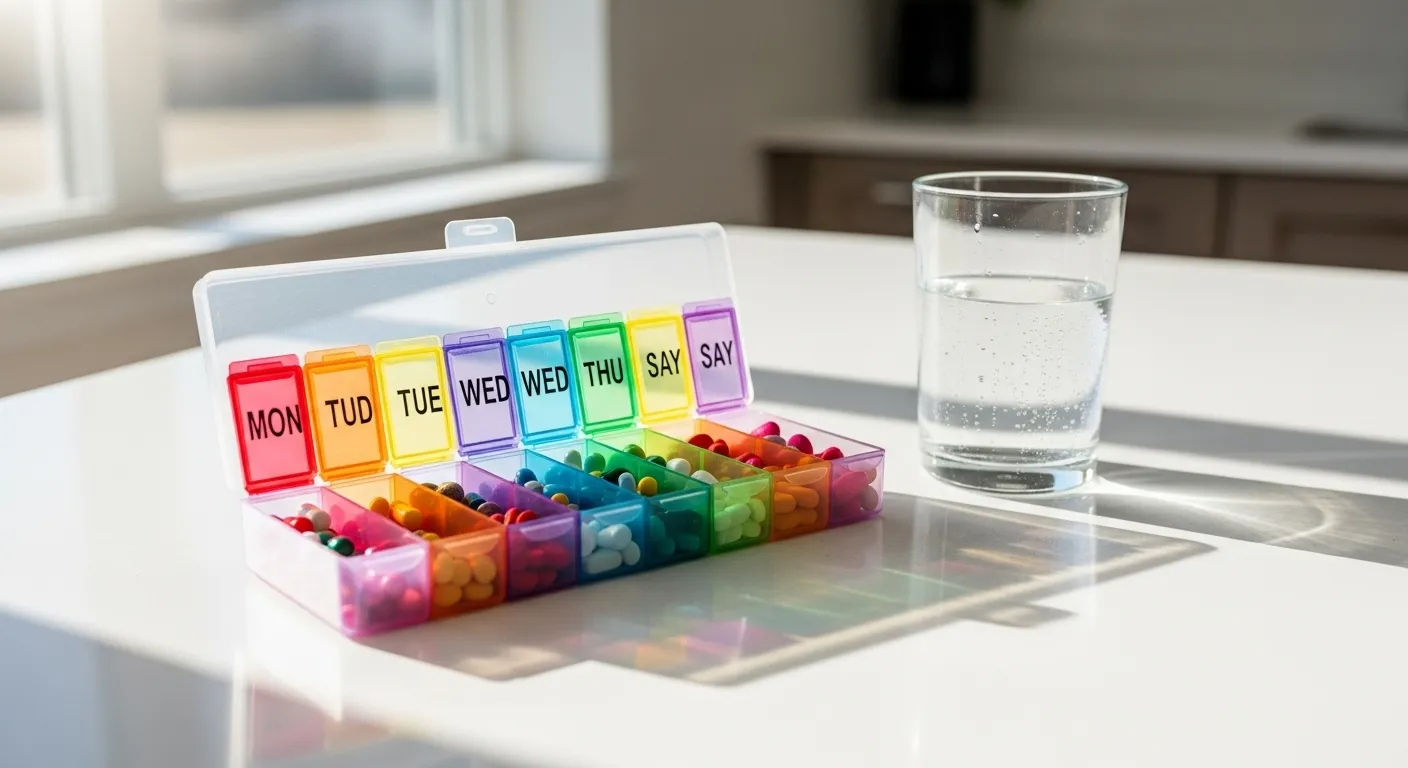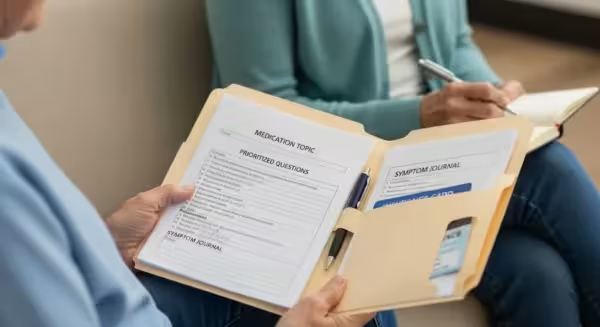
Making It a Part of Your Daily Routine
If you and your doctor decide that a supplement is right for you, incorporating it safely into your routine is key. Consistency is important for seeing benefits, and organization helps prevent mistakes like taking too much or forgetting a dose.
Tips for Safe Supplement Use:
- Use a Pill Organizer: A weekly pill organizer with compartments for each day (and even times of day) is an invaluable tool. It helps you see at a glance if you’ve taken your supplements and medications.
- Take with Food: Many supplements, especially minerals like calcium and magnesium, are better absorbed and less likely to cause an upset stomach when taken with a meal.
- Keep an Updated List: Maintain a complete list of all supplements, vitamins, and prescription and over-the-counter medications you take. Include the name, dosage, and how often you take it. Bring this list to every doctor’s appointment.
- Follow a Schedule: Try to take your supplements at the same time each day, such as with breakfast. This helps build a habit and makes it less likely you’ll forget.
- Store Properly: Keep supplements in a cool, dry place away from direct sunlight and out of reach of grandchildren. Avoid storing them in a bathroom medicine cabinet, as the humidity can degrade them.
- Don’t Double Up: If you miss a dose, don’t take two doses at once to “catch up.” Simply take the next dose at its scheduled time.
For insurance and medical coverage questions, refer to Medicare.gov. For mental health support, consult the National Institute of Mental Health (NIMH).
Disclaimer: This article is for informational purposes only and does not constitute medical advice. The content is not intended to be a substitute for professional medical advice, diagnosis, or treatment. Always seek the advice of your physician or other qualified health provider with any questions you may have regarding a medical condition.
Important Note for Our Readers: Your health and safety are our highest priorities. The information in this article is for educational purposes only. Please consult with your healthcare provider for personalized medical advice and before making any changes to your health regimen.















